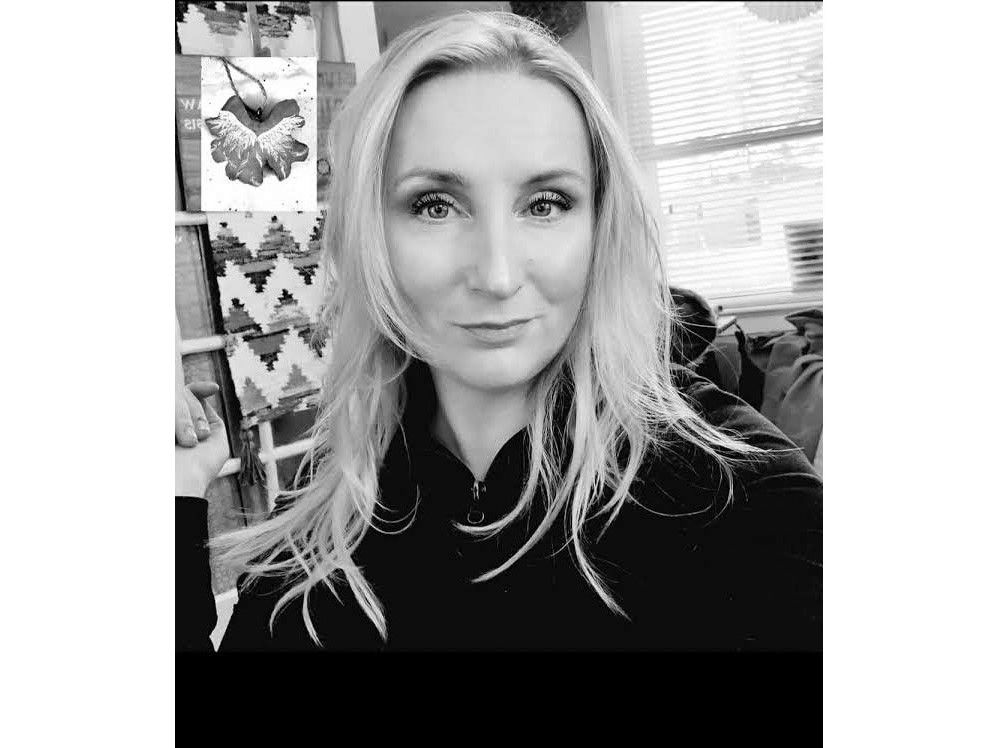Interested in starting your own entrepreneurial journey but unsure what to expect? Then read up on our interview with Emily Zufelt, Owner of What's Your Twenty, located in Embrun, ON, CA.
What's your business, and who are your customers?
I am the business owner, host, and producer of a mental health podcast called "What's Your Twenty?" The name of my business/podcast is an analogy of a police ten-code. When a Communications Operator (dispatcher) asks a police unit, "What's your 10-20?" they are asking for that officer's location. The purpose of that question is that of safety, to know where your co-worker is, and to send help if needed. In reference to the podcast, when I ask, "What's Your Twenty?" I'm not asking for their physical location; I'm asking where someone is mentally. Wherever that mental headspace happens at any given time, I'm hoping that through honest conversations and shared experiences, I might be able to help in some small, meaningful way.
My clients are the listenership that has steadily grown over trust and time. Originally the podcast was First Responder, Armed Forces, and Veteran-centric. However, mental health affects the greater population as a whole, not just those in uniform or service to others. Trauma binds us and connects us on a human level. It does not discriminate and knows no borders or boundaries. At one time or another, we all experience pain, loss, and suffering, but it's what we do with that suffering that gives meaning and purpose to our lives. Readers might want to support my business on that assertion, as my podcast is for everyone. Ordinary and everyday people connect over like experiences, giving hope that there are better days ahead. Equally important is to reinstate the lost act of kindness and basic humanity. That is demonstrated by those who have worked their way out of the darkness and turn around to extend hands to help pull their brothers and sisters out too. This is part of how we heal - connectedness with and to one another.

Tell us about yourself
I am a woman who is her own "work in progress." I have spent most of my life serving others, whether as a First Responder or as a volunteer. My life took an unexpected and drastic turn when I struggled with my mental health. I didn't understand what was happening at the time but later learned through therapy that due to constant exposure to the trauma, I acquired an injury from post-traumatic stress. The symptoms of that injury bled into every aspect of my life, personally and professionally. I began to experience anxiety, became severely depressed, and lived in a state of constant fear, hypervigilance, and hopelessness. Sleep was ever elusive, which resulted in constant fatigue and no motivation. I struggled to leave home, nor could I function in public settings. The only way I felt safe was to isolate myself physically, disassociate, and avoid mentally. My feelings ranged from sadness and despair to overwhelming frustration and rage. In the beginning, the changes were minute, but over time they accumulated and left me with a person I did not recognize nor care to be. There was so much shame and embarrassment from the state of my mental health that I went into hiding. I judged myself so harshly as I did not understand why I was not able to just 'flick a switch or turn it around. I was certain that I had become weak and that whatever was left over from my former self wasn't worth salvaging. Even if I had felt that it was, I certainly didn't know how or where to begin to sort through the wreckage that had become my life. I only felt any peace when I contemplated and planned my suicide. Many First Responders who acquire a PTSI (post-traumatic stress injury) or are diagnosed with PTSD (post-traumatic stress disorder) are quite often forgotten, out of sight, out of mind, and are left behind by those who take oaths never to leave a (wo)man behind. We are quickly replaced on the roster, another body easily filling a vacant seat that hadn't yet had time to lose the warmth left by its previous occupant. In an organization and profession we were once honored and proud to live and die for so effortlessly, our lives and years of service are reduced to a number stamped on the paperwork often lost in the shuffle. I had to either stay in that never-ending spiral of mental unwellness or force myself to get back up, learn to put one foot in front of the other again, and fight for my life. I chose the latter.
It started by connecting with a co-worker who had dared to open up about their feelings and experience with PTSI/PTSD. The podcast was created through conversations, idea-sharing, and the desire to help others on their healing journey. The podcasting medium allowed for greater audience reach and accessibility for anyone to plug in and listen anywhere at any time. The podcast started as a mission to help others, but I also benefited as there is a great deal of personal catharsis in what I do. The people motivate me daily to continue to do what I do. Period. Everyone needs to hear and see stories from others with similar experiences to know they are not alone, even though, at times, they desperately feel that they are. More importantly, I want people who have and do struggle with trauma-related mental health to know that it doesn't have to be a life sentence. There is the other side of the story, and that is post-traumatic growth. The podcast is a tool of positivity to share and demonstrate that there are ways out. It takes consistent hard work, but we can make it if we add connections and help from others who have been there.
What's your biggest accomplishment as a business owner?
My biggest accomplishment as a podcast host and owner was receiving feedback from my listenership. People felt seen, heard, validated, and most importantly, not alone. That was my goal all along, and knowing that it is being met through human connection is inspiring. Another accomplishment was building a social media following of like-minded people, leading to the podcast's listenership. It's also important to note that I had no previous knowledge or experience of podcasting in any way. I built it from the ground up with research, trial and error, courage, and great humility. The importance of that accomplishment is that so many people who have been or are in regimented careers feel that they cannot do anything other than what they've been trained to do. I once felt that way and was frozen by feelings of fear, failure, and incompetence, so much so that I wouldn't even try. After proving to myself that I can learn, create and achieve set goals and targets, I unlocked unstoppable courage and a belief in myself that I am capable of absolutely anything that I set my heart and mind to, as long as I'm willing to put in the consistent work and effort.
What's one of the hardest things that come with being a business owner?
One of the hardest things about being a business owner is the level of commitment that goes into it. For me, it is absolute devotion as I take pride in my work and refuse to put out a shoddy product or do anything halfway. It is a responsibility that is yours alone. If it is going to be successful, the needs of the business must go above the needs of others, including yourself. That leads to another difficult element of owning a business: balance. As much as I'm 'on,' it is important to find that balance by unplugging and taking time to rest. Overworking leads to burnout, and if you find yourself in that place, then both the business and you suffer. I often remind myself that there is no award for 'Most Overworked Person.'
What are the top tips you'd give to anyone looking to start, run and grow a business today?
- Stay authentic to yourself and your craft. What I provide and offer is about my uniqueness. That makes my business special and stand out from the rest, rather than just being a repeat of someone else's product.
- Learn to say no. This is particularly important when starting a business as people want to take on everything all at once to get out of the gate. Learning to say no will ensure you don't spread yourself, your time, and your energy too thin. Also, not every idea and opportunity is for you. Focus and lock on specific goals that are surefire targets. Your business will advance more with one amazing initiative than multiple mediocre ones.
- Ask for and accept help. Being fiercely independent, I have always struggled to ask for and get help. At some point, we must acknowledge that we cannot do everything alone. Take my podcast logo, for example. I am not skilled in graphic design, nor does it interest me greatly. That said, I chose to reach out and ask for help designing and creating my podcast's logo. It took a task away from my list, freeing me up to continue working on the things I am skilled at.
Is there anything else you'd like to share?
Manifestation is everything. The power of thought being turned into reality is real. Whatever your idea, vision, goal, or dream is, see it, imagine it, and dream it. Create it in your mind - it can and will come to fruition.
Where can people find you and your business?
Website: https://www.whatsyourtwenty.com/
Facebook: https://bit.ly/3ahfsWO
Instagram: https://www.instagram.com/whats_your_twenty/
If you like what you've read here and have your own story as a solo or small business entrepreneur that you'd like to share, then please answer these interview questions. We'd love to feature your journey on these pages.
Turn your craft into recurring revenue with Subkit. Start your subscription offering in minutes and supercharge it with growth levers. Get early access here.
